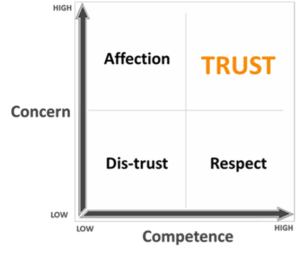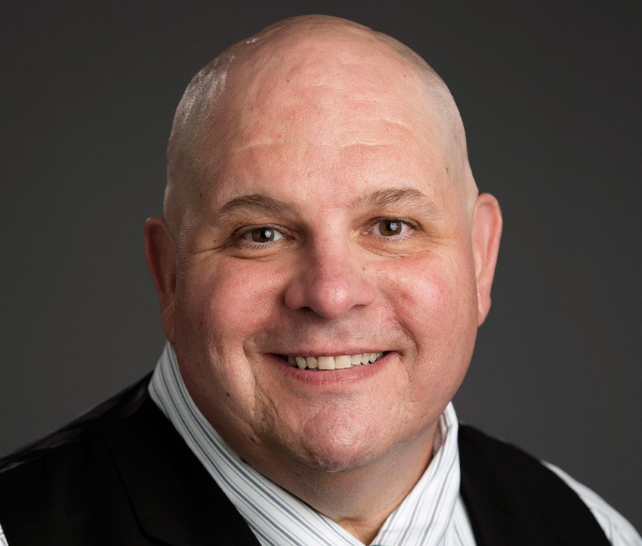Running a credit union is expensive. Buildings, office equipment, IT investments, and of course, payroll. But a lack of trust is by far your biggest expense. When employees do not trust the leaders, turnover is high. When employees don’t trust each other, job performance is low. When members don’t trust the credit union, everything is in jeopardy.
To help you minimize the cost of a low-trust organization, here is a model I created to help people understand the core elements of trust.

We have someone with high competence and low concern in the lower right quadrant. This is someone who is exceedingly talented but does not get along well with other people. They are brilliant. They are also rude and condescending. The word I use here is respect. I respect their skill and competence, but I do not trust them because I know they don't care about me.
We have someone who is incompetent and doesn't care in the lower left quadrant. This is not a winning combination. This is someone who does not know what they are doing and treats others poorly. This is the sort of person that should be "made available to industry" as quickly as possible.
In the upper left quadrant, we have someone who is a fantastic person but does not do their job very well. It's fun to be around them. They are a great person. They also have no idea what they're doing, which means others have to go behind them and fix what they did wrong. In the South, we have a saying for this: "He is trying so hard, bless his heart." The word I use here is affection. I like this person, but I do not trust them as my leader or teammate because I know they are incompetent.
In the upper right-hand quadrant, we have someone who is highly competent and shows genuine concern for others. We trust these people because they always do quality work and are great team players. They take their work seriously. They approach it more as a craft than just a profession. They also display high EQ. They have empathy for others and treat them with compassion.
I wrote a book on leadership, and I can summarize it down to this phrase:
I am good at what I do, and I do it because I care about you.
Two other elements complete this model.
Reliability
To trust you, I need to know that I can count on you. If you say you will have the report to me by 4 PM on Thursday, I can be assured that it will be in my inbox by 3:30 PM on Thursday. If you say that something is going to get done, it always gets done on time and correctly.
Honesty
Above all other things, honesty is the foundation of trust. My colleagues, Jim Kouzes and Barry Posner have conducted a more than 30-year research project surveying millions of people worldwide about the most important traits of a leader they would willingly follow. The findings show that nearly 90% say honesty is the most essential trait. Where there is no honesty, there is no trust. Where there is no trust, there is no teamwork. And where there is no teamwork, there is no chance for organizational success.







